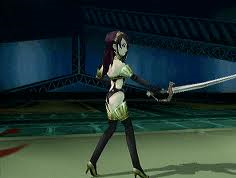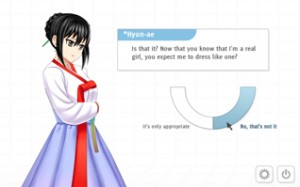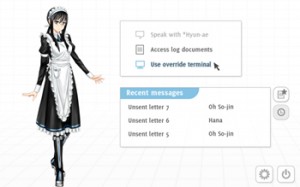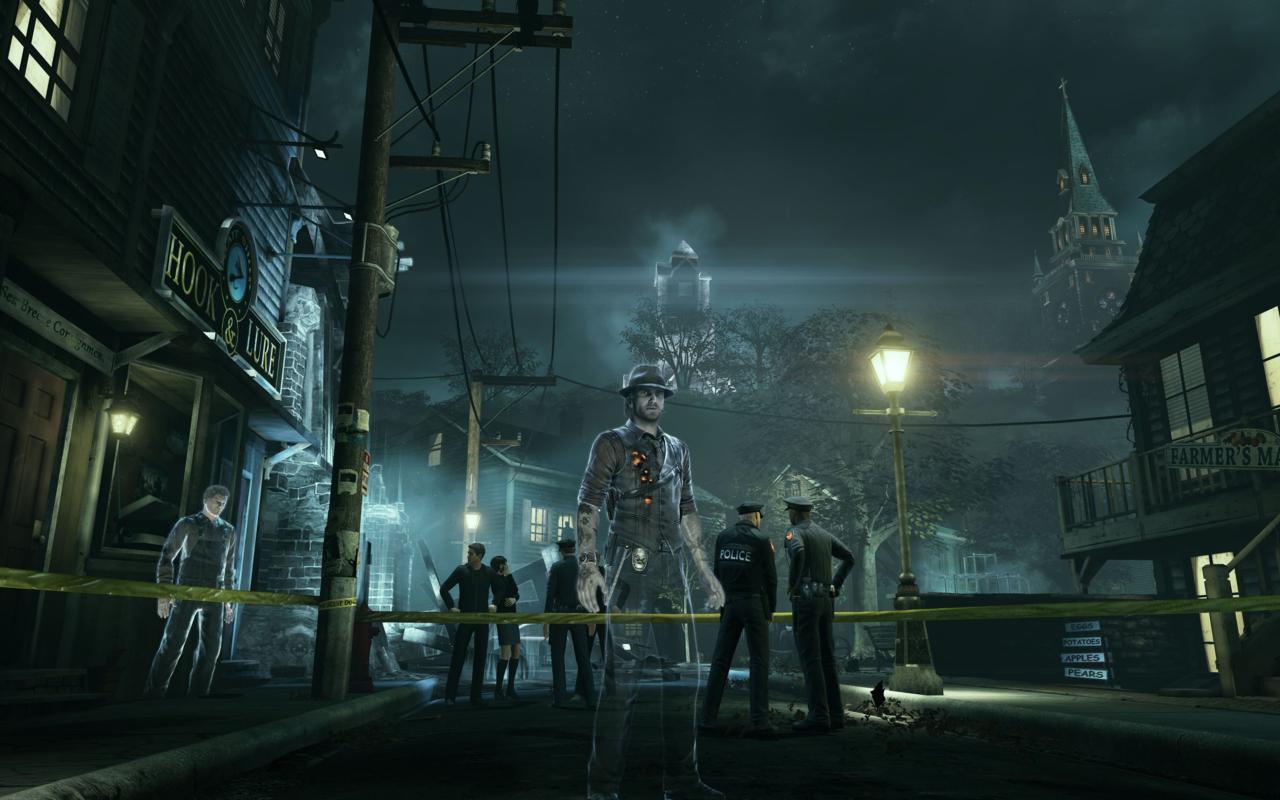We obsess over bodies. We judge them, modify them, examine them, and use them and we spend extraordinary amounts of energy trying to control them…whether they belong to us or to others. It’s not all about visuals, either. Social, professional, and political policies constantly circle around bodies and control; from dress codes in school or the work place to the debates raging over birth control, affirmative action, and the death penalty, our priorities are made clear. Whoever controls bodies controls everything.
It’s a concept that Christine Love’s Analogue: A Hate Story explores in full. The indie visual novel tells the story of Mugunghwa, a Korean space ship that was originally meant to colonize new planets but was lost before it could complete its mission. Thousands of years later it is rediscovered. The player acts as an archeologist of sorts, sent to recover whatever records remain and to investigate why the initial mission failed. Unable to physically access the ship due to technical difficulties, the player is forced to conduct their investigation electronically. With the help of the ship’s last surviving AI, they navigate the computer databases and try to recover whatever information they can about Mungunghwa’s catastrophic past.
Without getting too spoiler-ific, it quickly becomes clear that this story is all about who has the power to control whose bodies. Love’s dystopian future is frighteningly realistic because it’s taken directly from history. Isolated and facing a (frustratingly vague) catastrophe, the progressive colonial community regresses to a culture that is horrifyingly similar to the medieval Joseon Dynasty—an intensely patriarchal and oppressive society. Love’s narrative, told through a progression of diary entries, internal memos, and personal correspondence, reveals a world where women have no control over any aspect of their bodies—from speech to clothing to sex. Analogue is a deep, thought-provoking experience…
So why is there an option to “dress up” your AI sidekick?
It’s as common JRPG trope, and one that usually leads to skimpy costume choices and  frustratingly sexualized poses. Even games that comment on the inappropriate choices (such as Persona 3), doesn’t keep you from sticking your female characters into high heels and barely-there spandex. Once they get far enough into Analogue, the player unlocks the option to change *Hyuan-ae’s (your AI companion) outfit. It’s a disconcerting option for anyone who has just spent three hours exploring the controlling, abusive remnants of *Hyun-ae’s past. How does one justify playing dress-up with a character who has already been the victim of others’ control?It’s as common JRPG trope, and one that usually leads to skimpy costume choices and frustratingly sexualized poses. Even games that comment on the inappropriate choices (such as Persona 3), doesn’t keep you from sticking your female characters into high heels and barely-there spandex. Once they get far enough into Analogue, the player unlocks the option to change *Hyuan-ae’s (your AI companion) outfit. It’s a disconcerting option for anyone who has just spent three hours exploring the controlling, abusive remnants of *Hyun-ae’s past. How does one justify playing dress-up with a character who has already been the victim of others’ control?
frustratingly sexualized poses. Even games that comment on the inappropriate choices (such as Persona 3), doesn’t keep you from sticking your female characters into high heels and barely-there spandex. Once they get far enough into Analogue, the player unlocks the option to change *Hyuan-ae’s (your AI companion) outfit. It’s a disconcerting option for anyone who has just spent three hours exploring the controlling, abusive remnants of *Hyun-ae’s past. How does one justify playing dress-up with a character who has already been the victim of others’ control?It’s as common JRPG trope, and one that usually leads to skimpy costume choices and frustratingly sexualized poses. Even games that comment on the inappropriate choices (such as Persona 3), doesn’t keep you from sticking your female characters into high heels and barely-there spandex. Once they get far enough into Analogue, the player unlocks the option to change *Hyuan-ae’s (your AI companion) outfit. It’s a disconcerting option for anyone who has just spent three hours exploring the controlling, abusive remnants of *Hyun-ae’s past. How does one justify playing dress-up with a character who has already been the victim of others’ control?
I’ll admit, my initial response was a kind of resignation. It’s a common feeling for female and feminist gamers. Even the most progressive games seem to stumble over the details, leaving hopeful players to settle for the less-satisfying “at least they tried.” I was disturbed enough that my first time through, I refused to use the change_outfit command in the terminal, on principle alone. But I’m a completionist and so, on my quest to achieve the alternate endings, I finally gave in and explored the offered outfits. And it’s here that my respect for Love and her nuanced approach to women and bodies only grew.
Analogue offers five cosplay options for *Hyun-ae: a schoolgirl outfit (the default), a traditional hanbok, a French maid costume, a noir-inspired detective ensemble, and a scientist’s lab coat. So far, it sounds pretty normal…particularly (and unfortunately) the maid option. But as you select the different costumes and return to speak with the transformed *Hyun-ae, you get to see her reactions, and that makes all the difference.
Spoilers Ahead
As the player explores the various databases, it becomes clear that *Hyun-ae (and possibly the secondary AI, *Mute, as well) wasn’t always an AI. Her consciousness once belonged to a living, breathing human being, and she still has her memories. As a child, *Hyun-ae had loved cosplay. As a teenager in a much more oppressive era, however (through events that are made clear as the game progresses), she no longer had the option to choose what she wore. When you change *Hyun-ae’s outfit to the hanbok, she becomes visibly depressed. Unlike the other outfits, this one is not one she designed. It was one she was forced to wear in order to be proper and lady-like. She acknowledges that it is probably more socially appropriate, but it’s a reminder of her lack of control. It is only by letting her wear the other outfits that she regains some of the agency that she lost.
secondary AI, *Mute, as well) wasn’t always an AI. Her consciousness once belonged to a living, breathing human being, and she still has her memories. As a child, *Hyun-ae had loved cosplay. As a teenager in a much more oppressive era, however (through events that are made clear as the game progresses), she no longer had the option to choose what she wore. When you change *Hyun-ae’s outfit to the hanbok, she becomes visibly depressed. Unlike the other outfits, this one is not one she designed. It was one she was forced to wear in order to be proper and lady-like. She acknowledges that it is probably more socially appropriate, but it’s a reminder of her lack of control. It is only by letting her wear the other outfits that she regains some of the agency that she lost.
 It’s important to note as well that two of the costumes are gender-neutral and none of the outfits are revealing. I’m still not entirely pleased by the maid costume (or the fact that her first line, after selecting it, is “Welcome back, Master. What can I do for you?”), but it at least avoids some of the more visual hazards. The skirt is knee-length and loose. The neckline is high, and tall, flat-soled boots cover her lower legs. It cannot avoid problematic associations, but the costume itself doesn’t attempt to turn *Hyun-ae into a sex object. In addition to serving a narrative function, the cosplay options respectfully avoid visual objectification.
It’s important to note as well that two of the costumes are gender-neutral and none of the outfits are revealing. I’m still not entirely pleased by the maid costume (or the fact that her first line, after selecting it, is “Welcome back, Master. What can I do for you?”), but it at least avoids some of the more visual hazards. The skirt is knee-length and loose. The neckline is high, and tall, flat-soled boots cover her lower legs. It cannot avoid problematic associations, but the costume itself doesn’t attempt to turn *Hyun-ae into a sex object. In addition to serving a narrative function, the cosplay options respectfully avoid visual objectification.
In the end, Analogue stays true to its principles. It is a story about agency, choice, and control, and the cosplay option serves an important narrative function. Like many aspects of Love’s story, it can create an immediate, visceral reaction for players who are reacting to past experiences with misogyny and oppression, but it also highlights how cultural assumptions color our perceptions. Western audiences are generally more familiar with objectification through sexualization. We are used to seeing women being treated as objects to be stared at and consumed, rather than human beings. On the Mungunghwa, however, women are being objectified as property. It might not take the form of barely-there fabric constructions, but the core issue remains…what someone wears isn’t the issue. Whether it’s a business suit, a form fitting dress, or a sexy maid costume, it’s the ability to choose that makes all the difference.




